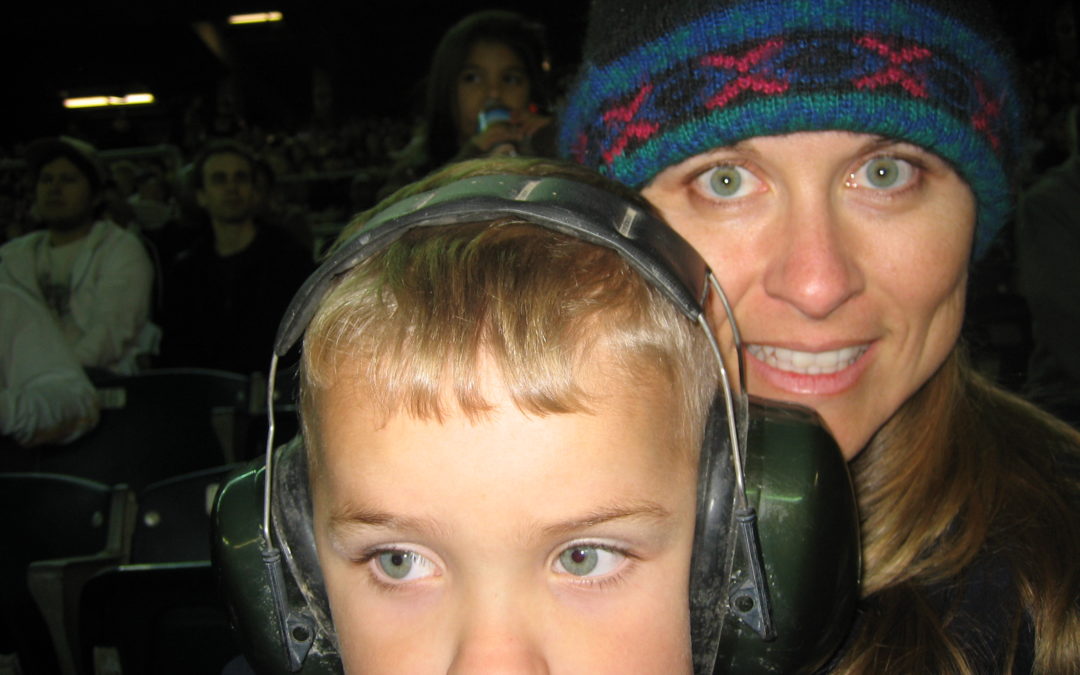If I were to drop you in the canyon of the autism spectrum, we would never see you again. The spectrum is so vast it almost seems borderless. And yet a million kids, possibly your own, are navigating that canyon. All of these kids stumble, fall, get lost, rise up, and experience all the ups and downs of a growing kid. At some point, they find out who they are. And part of who they are includes this thing called autism.
At what point do you tell your moderate to high functioning kid that he or she has autism? I guess you can answer that if you know what kind of reaction you will get. Will your kid resent it, shrug it off, own it, or something in between? And what kind of difference will it make? How might it affect self-esteem and behavior? Will there be more or less growth because your child knows they are on the spectrum?
We have two boys on the spectrum and struggled with these questions for years. Both are high functioning and one has an Aspergers diagnosis. Six months ago we sat both of them down, separately, and told them they have autism. I waited six months to write about it because I figured I would probably know by now if it was a mistake or success. Our boys were 12 and 10 years old when we told them. I am sure most of you are thinking, “Well, why did you wait so freaken long!!?” Here’s why.
Labels
“Labels have the negative value of making smaller boundaries for people.” Michael Graves
When I was teenager my mom took me to see a “doctor.” It was not at a hospital and did not look like any doctor’s office I had ever seen. I sat down and was interviewed by two people who did not look like doctors to me. I struggled in school a bit and was not the sharpest tool in the shed. But it did not take me long to figure out these “doctors” were trying to figure out what was wrong with my brain.
A week later my mom gave me this official looking piece of paper with real letter head. It described what the doctor could find out about me in an hour. It said that I was not a good student, in particular that I could not read or write well. And that was because I had a “visual dyslexia.” BAM! Label slapped right across my forehead!
I did not like it. I did not understand it. Words did not appear backwards to me, nor did I write backwards. Well, maybe dyslexia meant something more than what I knew. I did not care and resented this whole diagnosis. It did nothing for me except bring my self esteem down. Any time I failed at something academically or otherwise, “dyslexia” was always in the back of my mind.
By the time my Tyler was five years old, he had more labels than the cereal aisle at the grocery store (see Keep It Together Man, Chapter: Tyler’s Year). I did not like any of his labels! He needed help, yes, but worse than giving me a label was posting one on my kid. Nevertheless, he could not get the help he needed without the stamp. So when the school district diagnosed him with “autism,” I was reluctantly on board.
I am not a label guy! From my experience, labels do more harm than good. Even though my kid was in an autism class and every kid in there had autism, I made sure the teacher, aides, therapists, and anyone associate with my kid, never used the term autism. I just did not want any label identifying him as anything but a great kid. He is not autism! He is a fantastic, beautiful, fun loving kid! And he is my boy.
No Body Knows But You
A few years after being in an autism spectrum disorder classroom, our Tyler began full inclusion with an aide. He stayed at the same school and kept in touch with his special education teachers and aides. One day he came home and asked, “Dad, do I have autism? Everyone in Ms Esther’s class has autism, and I used to be in that class.” A few times he showed me videos of people explaining autism. He definitely felt a connection. We discussed it several times over the years. I never told him, “No, you do not have autism,” but usually asked him what he thought.
Really, I figured he just knew. He knew he was different than the other kids. He knew his brain worked differently. He had several daily reminders that he was different, from a full-time aide to being pulled out of class for resource services. He was growing and progressing and we did not feel like we had to label him with autism.
There have been several people over the years including IEP team members, telling us to tell him. We knew eventually we had to confirm his suspicions. I mean, how many forms for sports and programs and scouting and everything did we fill out? On every form we had to list “autism,” and write an explanation of the kind of kid they were about to get. Plus I was writing a book about our family dynamic and Tyler was the central figure in it.
And speaking of the book. There is a very important chapter in, Keep It Together Man, entitled “No Body Knows But You.” I believe strongly that this is the answer to the question: when to tell your kid he has autism. You know his strengths and weaknesses. You know what sets him off and when to introduce new situations. We waited a long time. That might not work for you as of course everything depends on the kid. Take our experience for what it’s worth. For our Tyler, there were a number of factors including some maturity issues. My wife and I decided together, and told him when he was 12 years old.
Results
You will recall that I told my 12-year-old and my 10-year-old on the same day minutes apart. I have not written about my 10-year-old’s response because he had the same reaction that I did when they told me I had dyslexia. He does not want to discuss it. To respect his wishes, writing about him will be minimal.
Six months after we told Ty he had autism, we have only had one negative issue. Occasionally we will see him exhibiting new quirky behaviors. When we ask him about it, he says, “This is something autistic people do.” Meaning, he reads about autism and then starts doing behaviors some kids with autism do. We just tell him to knock it off. This was one of our concerns in the first place.
Other than that, Ty has owned it! He loves it! He tells people about having autism and writes about it. He wants to be the poster boy for autism! He feels complete now that he knows. In hindsight, we probably waited too long to let the cat out of the bag. However, I do not think there was much of a down side, so it’s all good. It was far more than we expected to the point that sometimes have to reel him in. He has gained more social interaction and maybe even FRIENDS because of it. Believe me when I tell you that this is huge for him! It has been hard for me to turn him down when he asks to have a voice or a platform. But I think I am coming around and will give it to him. Stay tuned.


